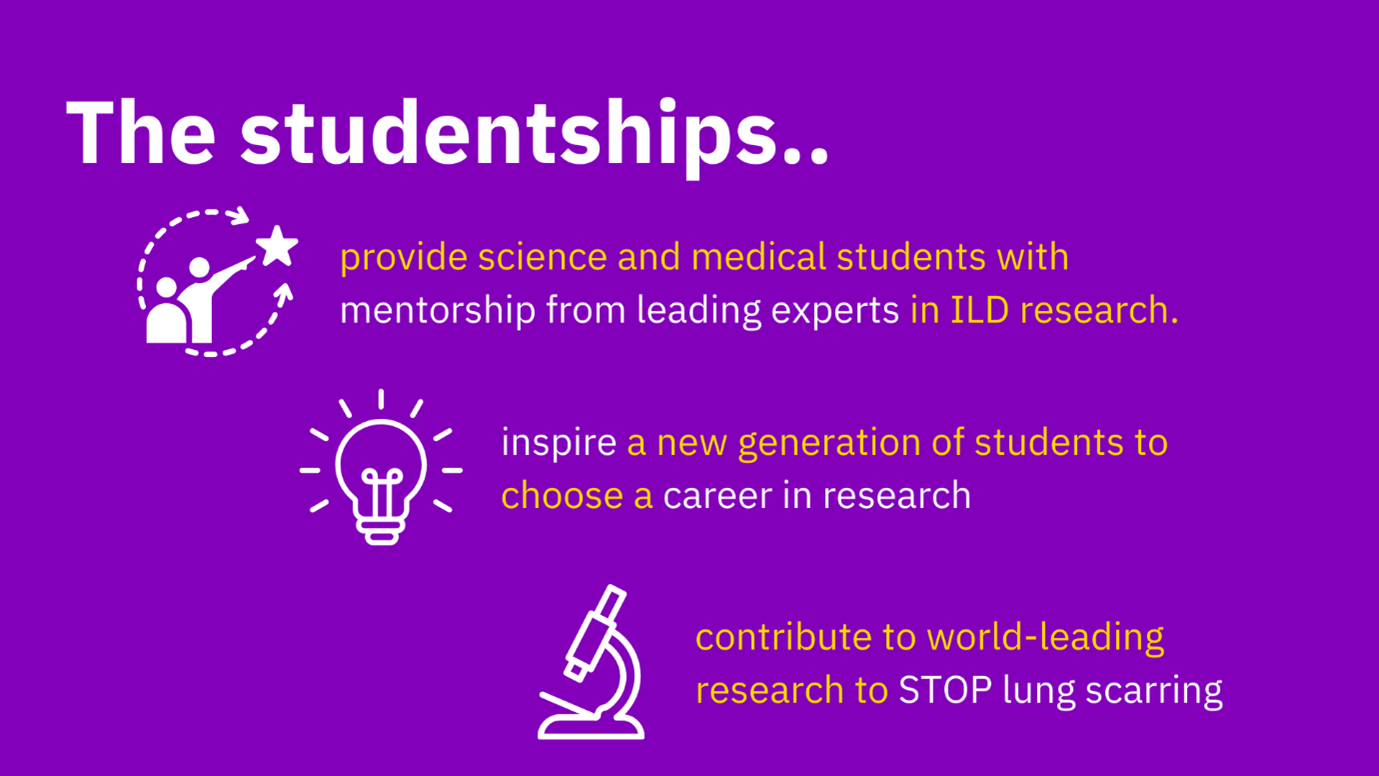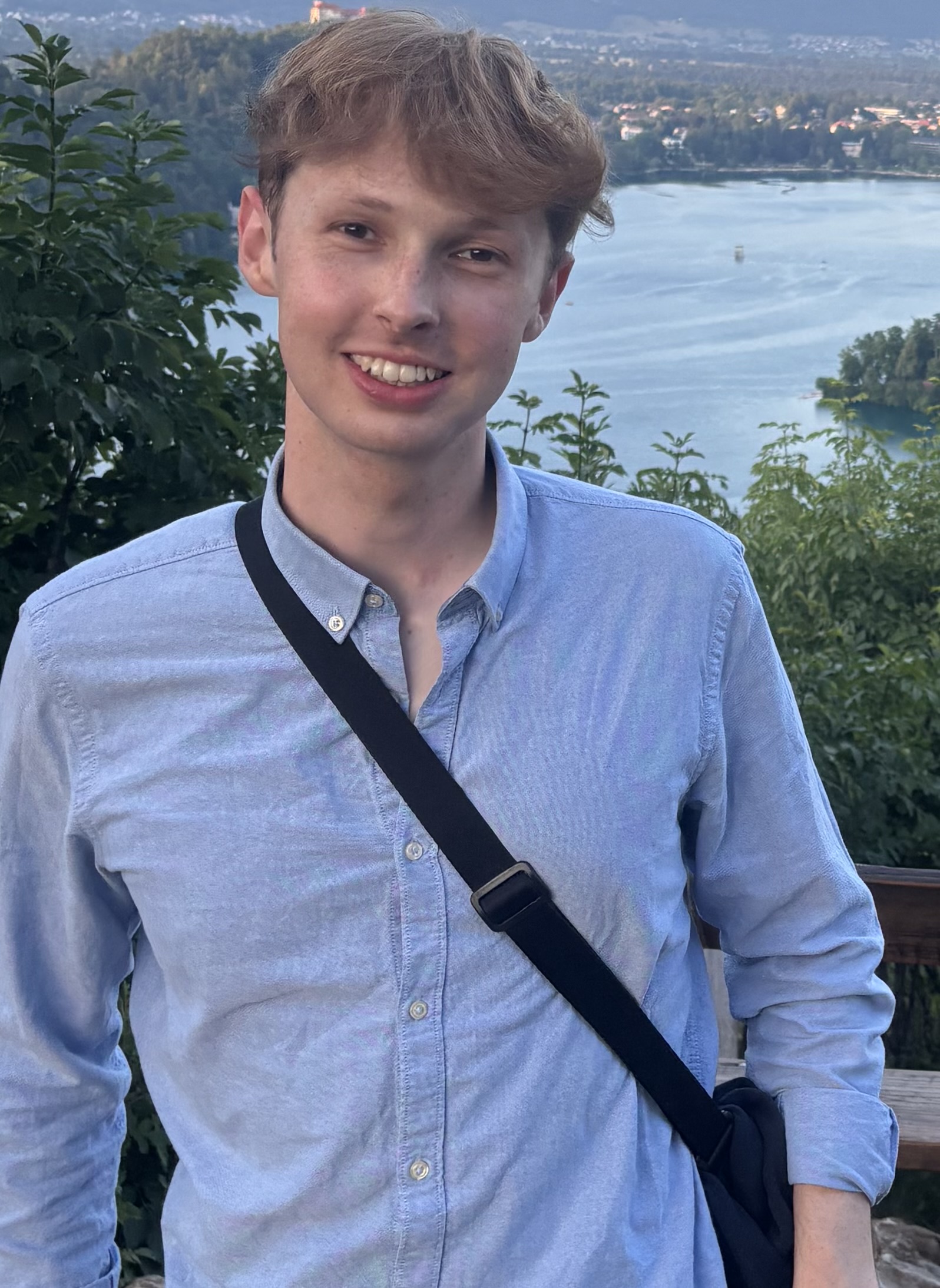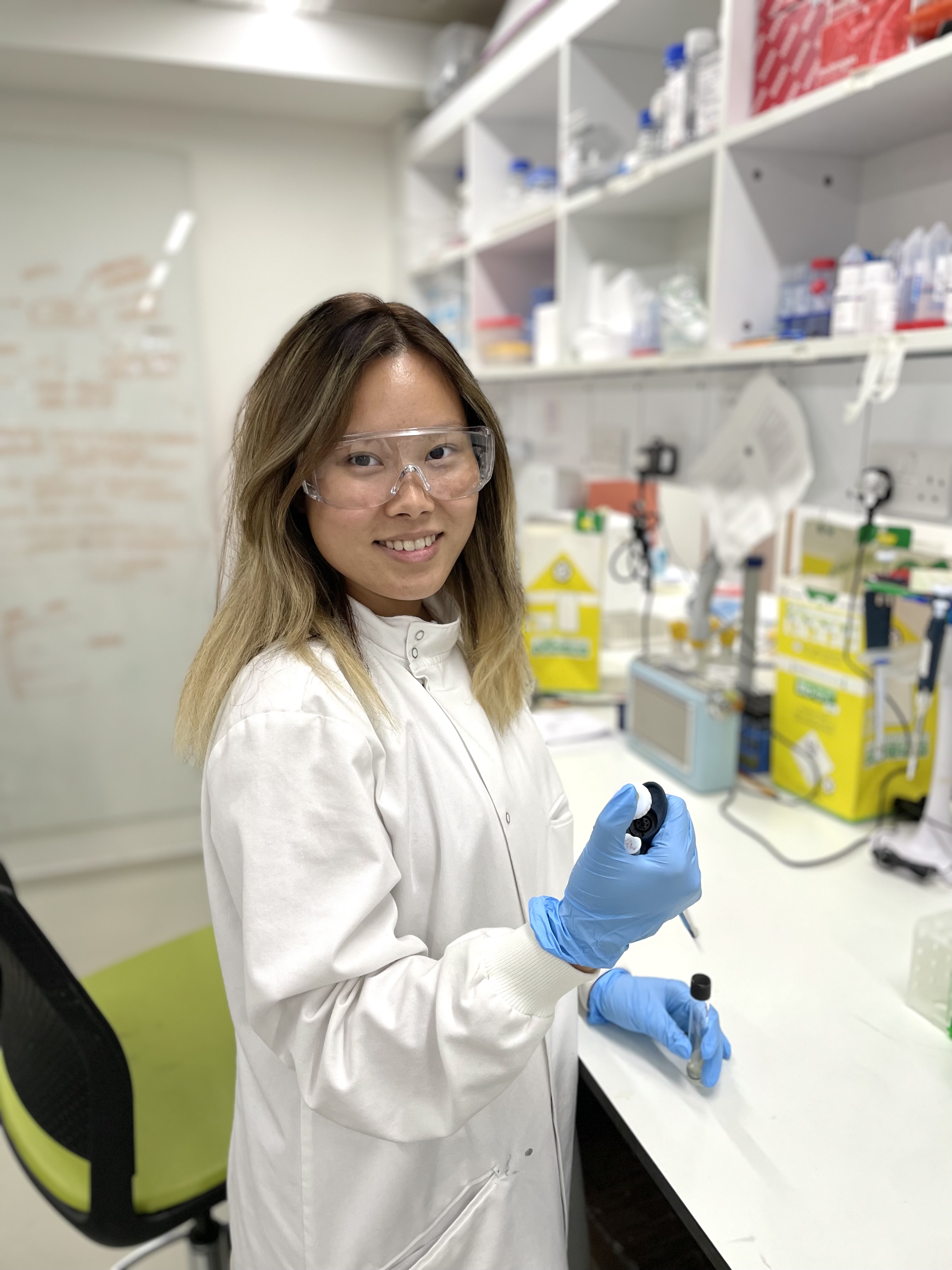Action for Pulmonary Fibrosis are proud to announce the winners of our 2025 Summer Studentships, which are delivered in partnership with the British Association for Lung Research (BALR).
University students, Rommy and Theo are undertaking an 8-week summer research projects under the mentorship of experienced interstitial lung disease (ILD) researchers, Dr Manuela Platé and Mx Madeleine Rossanese (University College London) and Dr Louise Crowley (University of Birmingham).

We believe that supporting pioneering research and inspiring the ‘next generation’ of scientists to pursue a career in research will make a vital contribution to faster diagnosis, new and better treatments, and improved care for those affected by pulmonary fibrosis (PF). This is only made possible by the generosity of our supporters, and we need more people to donate to keep this vital research alive. You can support us by making a gift to help us fund more PF research. Donate to the Hope for All Research Appeal.
BALR President, Professor Elizabeth Sapey said:
A huge thank you to Action for Pulmonary Fibrosis and all the people who support their work. This is an amazing opportunity for some of the brightest early career researchers to learn about pulmonary fibrosis and contribute to research which will improve people’s lives in the future.
About the research
Theo’s research project:
Research suggests that neutrophils, a type of immune cell which helps the body to fight infections, may contribute to lung scarring in IPF. High neutrophil numbers in the lungs have been linked to more severe lung fibrosis and poorer survival. Researchers have found markers which show that neutrophils may become activated in the lungs of people with IPF, but it’s still unclear what drives this altered behaviour.
As part of this project, Theo will take blood from healthy volunteers and carefully separate the neutrophils from the other blood cells. The neutrophils will be mixed with fluid taken from the lungs of people with IPF. Theo will then study how these immune cells react and what substances they release. He’ll also look at which substances in the lung fluid are triggering this response. Finally, Theo will test how these activated neutrophils affect lung cells, called fibroblasts, that are involved in scarring, to better understand how IPF develops.
.png)
Rommy’s Research Project
IPF is a lung disease that starts with repeated damage to the alveoli, the air sacks that fill with air when we breathe. In older people or those with certain gene variants, the lungs can’t heal properly. This leads to scarring, which makes breathing harder. Cells called fibroblasts, which normally help with healing, become overactive and cause more scarring.
A group of proteins called Src-family kinases (SFKs) are involved in this process. One drug that blocks them is being tested in clinical trials, but it might affect other important cell functions too. Newer drugs that target SFKs more precisely might work better and cause fewer side effects. This project builds on earlier work using single cell cultures to study SFKs. Rommy will employ an advanced 3D method using slices of human lung tissue to see how cells behave in IPF. Rommy will test whether new SFK-blocking drugs can change how scar-forming cells behave and interact with other cells. She’ll also look at how these drugs affect cell communication and function, and map where scar-forming cells are most active in the lung.
.png)
Why did you apply for a BALR-APF Summer Studentship?
Theo:

I applied for the BALR-APF summer studentship with the hope that I may be able to contribute to the understanding of the causes of lung scarring. I hope that completing this studentship will help me learn a range of laboratory techniques and research skills to build a foundation for a future career in research. I also hope that it will enable me to present my research to patients and their loved ones, and to the scientific community. I’m looking forward to learning about the latest PF research and developing my scientific understanding.
Rommy:

I have a strong creative drive and a deep-seated curiosity. This Studentship opportunity is a strong motivational factor, which will help to fuel my ambition to one day establish and lead my own independent research projects. Long term, I aim to contribute to advancing our understanding of disease mechanisms and therapeutic interventions, ultimately helping to close gaps in medical knowledge and treatment options.
Stay tuned for future updates, where we will talk to Theo and Rommy about their studentship experience and what new insights have been gained from their research projects.
Do you want to get involved in supporting research?
Want to share your lived experience with scientists to help shape future PF research? Or work with us to create information or stories about research? Contact us at involvement@actionpf.org
Whilst you are here, you may be interested in:
